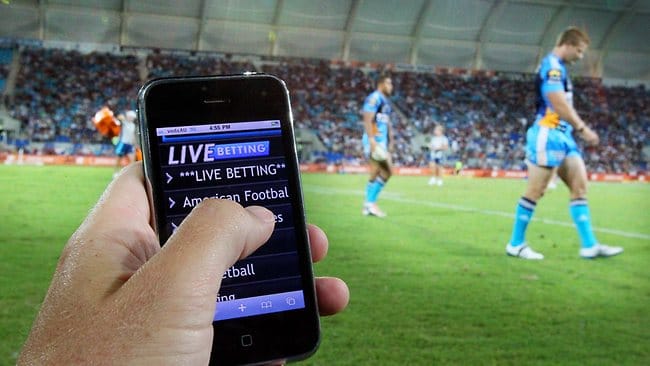When it comes to legal sports betting in the U.S., there’s no question that the availability of online and mobile platforms are important. Not only do they offer a convenient option for betters to place their wager, but they also allow sportsbook operators to reach more of the population.
In many states, physical casinos are not closely located to heavily populated cities. If sports betting was restricted to in-person betting only, then this would severely limit how many bettors could consistently place a bet. On the other hand, mobile betting allows anyone within state borders to place a bet regardless of their location.
One important caveat about this is how mobile bettors are required to register. Some states like Rhode Island require bettors to register in-person at a specific casino. This is a one-time requirement that then gives bettors the freedom to bet from anywhere in the state. However, this rule still restricts access to many bettors located far away from a licensed casino.
Instead, states like New Jersey do not require you to register in person before placing a bet. An online verification process will ensure that bettors are of legal age and located within state borders. This is a far more inclusive registration process that makes it easy for bettors located anywhere in a legal state to easily sign up and place a sports wager.
The availability of mobile betting is important because of the increased popularity of in-game sports bets. Traditionally, most sports wagers were placed before an event begins, but now several betting options are becoming available while a game is still live. This is directly powered by the rapid collection of sports data, which is then used to update real-time odds based on how an event is playing out at any given time.
Something that makes real-time odds in relation to in-game wagers difficult is how fast a user’s mobile data service is. Slow internet service will make it difficult to receive updates, let alone place a wager on them. Now that live-game streaming is becoming available, this becomes downright unusable unless a user has access to fast internet.
4G data is currently the best widespread internet service available, but 5G is in the works and is absolutely the future of sports betting. Wireless carriers are in the process of releasing 5G networks to specific markets. These will target cities with football stadiums and basketball arenas, two of the best sources of sports betting revenue.
Providers like Verizon and AT&T are at the forefront of the 5G revolution. As impactful as 5G service will be, many current smartphones will not have the capacity to use it. Users will gradually need to upgrade to stronger smartphones to use 5G service, which means that very few people will have access to it. On top of that, it will surely take carriers several years before 5G is offered across the country.
While it may take some time for 5G data service to be offered nationwide, it is becoming clear that it is the future of mobile sports betting. With the sheer amount of data being transferred every second, users will need 5G service in order to fully take advantage of real-time odds for in-game sports bets.




